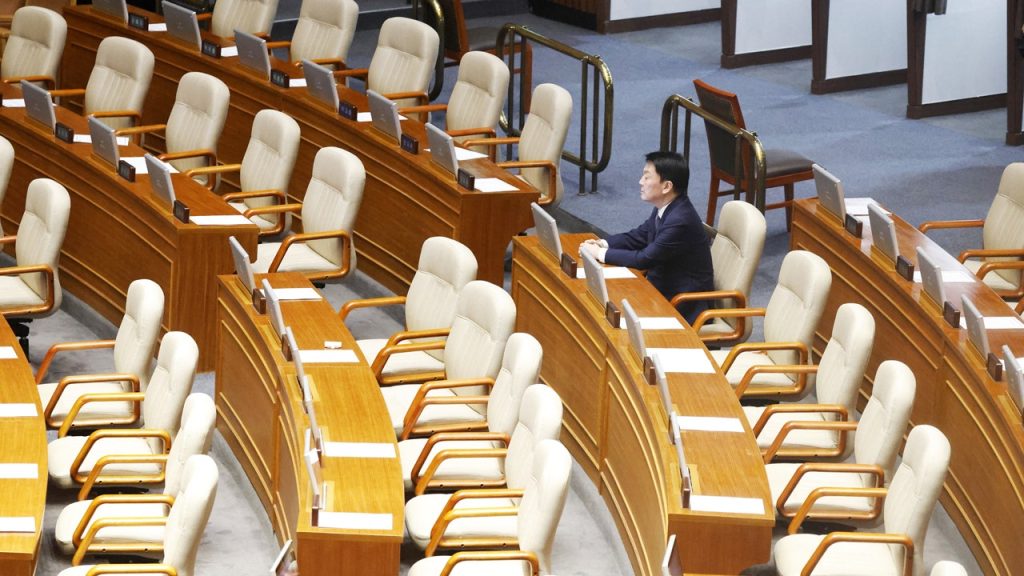South Korean President Yoon Suk Yeol faced a significant political crisis this week, stemming from his controversial attempt to impose martial law, a move that sparked widespread condemnation and calls for his impeachment. The situation unfolded rapidly, with Yoon invoking emergency powers to quell what he termed “anti-state forces” and overcome political opposition. This drastic measure, however, was met with immediate backlash, forcing Yoon to quickly rescind the order and issue a public apology. Despite the apology, the opposition-led parliament initiated impeachment proceedings against the president, a move that ultimately failed due to a boycott by members of Yoon’s own party. The incident underscored the deep political divisions within South Korea and raised concerns about the stability of the Yoon administration.
Yoon’s declaration of martial law was a dramatic escalation in his ongoing struggle with political opponents. He accused these opponents of obstructing his agenda and undermining national security, justifying the emergency powers as necessary to restore order and address the alleged threat. Critics, however, argued that the move was a blatant power grab, an attempt to suppress dissent and consolidate his authority. The swift and widespread condemnation of the martial law declaration, both domestically and internationally, forced Yoon to backtrack and ultimately led to the impeachment attempt. The episode revealed the fragility of South Korea’s democratic institutions and the potential for executive overreach.
The impeachment motion brought before the National Assembly reflected the seriousness of the situation and the determination of the opposition to hold Yoon accountable. The Democratic Party, the main opposition force, argued that Yoon’s actions constituted a grave violation of the constitution and warranted his removal from office. They emphasized the potential for such actions to undermine democratic norms and create a dangerous precedent for future leaders. The impeachment process itself, however, became a point of contention, as members of Yoon’s party boycotted the vote, preventing the necessary quorum from being reached. This tactical maneuver effectively shielded Yoon from immediate removal from office but further inflamed political tensions.
The boycott of the impeachment vote by Yoon’s party, while strategically effective in the short term, served to deepen the political divide within South Korea. It underscored the partisan nature of the conflict and the unwillingness of both sides to compromise. The opposition accused Yoon’s party of protecting him from accountability, while the ruling party defended their actions as necessary to prevent what they considered a politically motivated impeachment. This standoff highlighted the challenges facing South Korean democracy, where political polarization has made it increasingly difficult to address critical issues and govern effectively.
Yoon’s apology to the nation, while an attempt to mitigate the damage caused by his actions, did little to appease his critics. He expressed regret for the disruption and anxiety caused by the martial law declaration, but maintained his stance against resigning. This refusal to step down, coupled with the failed impeachment attempt, left many South Koreans feeling disillusioned and frustrated with the political process. The incident raised concerns about the future direction of the country and the ability of its political leaders to navigate complex challenges.
The fallout from this political crisis is likely to be significant and long-lasting. The failed impeachment attempt, while a temporary reprieve for Yoon, has left his presidency weakened and his legitimacy questioned. The deep political divisions exposed by the incident will be difficult to bridge, making it challenging for the government to effectively address the pressing issues facing the nation. The episode also serves as a cautionary tale about the importance of upholding democratic principles and the dangers of executive overreach. The future of South Korean politics remains uncertain, but the events of this week have undoubtedly left a lasting mark on the nation’s political landscape.

